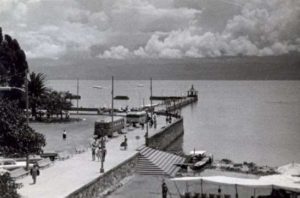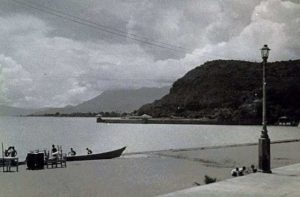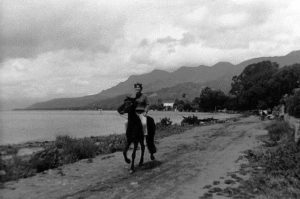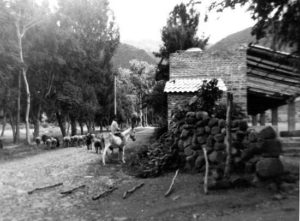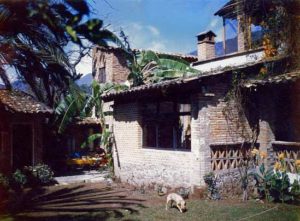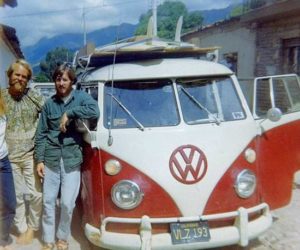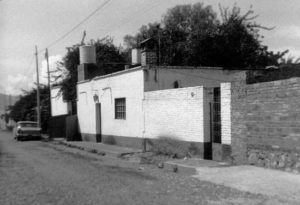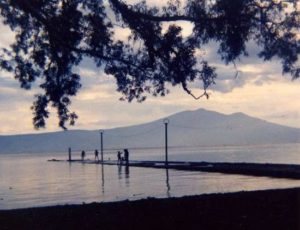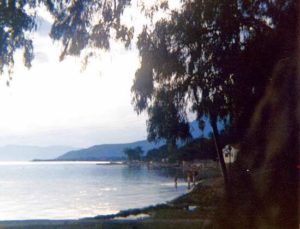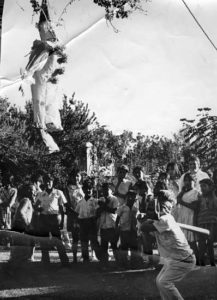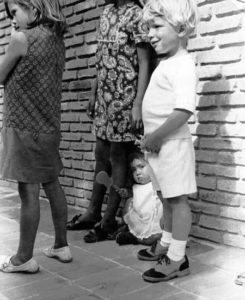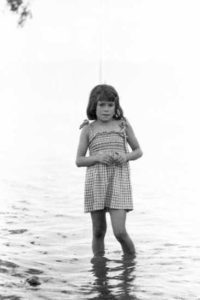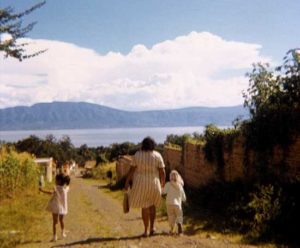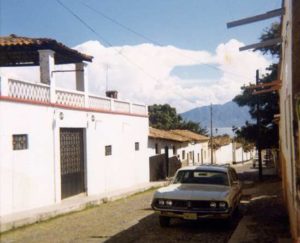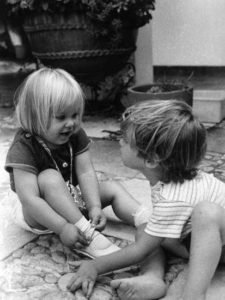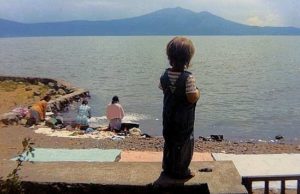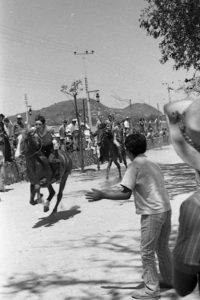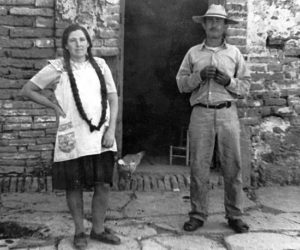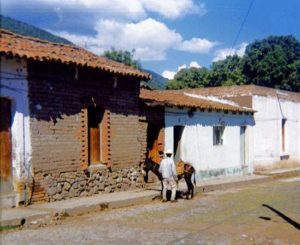Westwords
As Yogi Berra might say, 90 per cent of the world is changing. The other half is making adjustments.
Among relatively recent arrivals to the shores of Lake Lirio (formerly Lake Chapala before water hyacinth took over the top), only Tony Burton and a few astute historians can begin to describe the changes a few years have brought.
Most of us missed the high rise of 1938 when the lake got all excited and flooded the road and halted what little traffic there might have been between Chapala and Jocotepec.
We didn’t see old-fashioned workmen with leathery hands, building village homes, starting with adobe blocks. We weren’t around for the 1950 construction of the carretera or even the more recent earthquake that rang church bells in Ajijic.
Marsha Sorensen arrived in 1965, a decade later than her dad.
“I heard stories about him having to come in by launch because the roads were bad.”
Marsha’s father was retired military who had survived two close calls in World War II.
“He crashed an Air Force plane, joined the Navy and just made it off a sinking ship.”
For a short time, he invested his pension in the posada and bar business at lakeside but didn’t like his clientele.
“To be blunt about it, he closed to get rid of the gays.”
Marsha remembers when there were no homes on the hill side of the highway, few cars, not enough electricity, no washing machines and one telephone. She remembers livestock wandering around the Ajijic plaza, an ice truck that stopped at most every doorway and other vendors with burros and wagons or just a pack on their back.
She has vivid recall of a crime scene.
“Indians on horseback sometimes came down from the mountains and into the village. On one occasion, somebody insulted somebody’s mother and a man on a horse swung his machete and chopped off the other man’s head. It was gruesome and it seemed forever before somebody covered the body with a sheet.”
Marsha Sorensen remembers when the circus came to town.
“It was a mini-circus. A band of gypsies set up a show. There was a fortune-teller. Men vaulted from one slow horse to another. They did tight-rope tricks about three feet off the ground. They’d show a free movie against somebody’s white wall and rent folding chairs to the audience for a nickel each.”
Ah yes, those were the days. Marsha rented a house for $20 a month.
“I came back five years later and it was $200.”
Marsha remembers her father building a fire under an outdoor tank so there’d be hot water for baths.
“I don’t know how they did it but the Batesman family had indoor hot water. That was very impressive. It put young Tony and Alex well above the crowd.”
Marsha smiled at the memory.
“Their father had been a New York architect.”
Just 40 years ago, Marsha went with village boys to collect “fertilizer” from a bat cave.
“We had a candle, which didn’t help much. I just missed putting my hand on an iguana. I heard the hiss and jumped like I’d been shot.”
Marsha says some of her memories are outrageous.
“I bought a rabbit at a soccer match. A man had tied the rabbit’s feet together and left it swinging from a tree limb while he watched soccer. I couldn’t stand the sight. I gave him my pesos to get the rabbit down from the tree.”
Famous hippies came to lakeside in a brightly painted bus. Timothy Leary may have been in the party. The visitors were swimming in the nude until warned that the police were coming. After that, they were running in the nude.
It has been rumored that some old hippies are still around.
Weekend music remains unforgettable.
“Mariachis would play well past the middle of the night. I remember one gentleman, who might have been drinking, hired them to play for his horse. The songs must have been sad. He hugged the horse and cried.”
Marsha had a horse, a wonderful little Mexican mare. She and a few others in the horse set traveled widely. Dirt roads connected the little communities.
“I was warned not to go near the cantina in Jocotepec. It was said to be wild and dangerous. Men supposedly had pistols and knives.”
An English youth came to Ajijic and Marsha accompanied him to the village pool hall.
“Everything came to a dead stop. All conversation ceased.”
Much has changed along Lake Lirio but, to this day, some girls can still disrupt some pool rooms.

